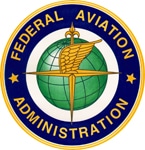
This $205 million in Airport Improvement Program grants directly addresses the need for improved aviation infrastructure – especially in rural communities,” said Secretary Chao.
This first increment of supplemental funding provides grants to projects at 37 airports. These projects include runway reconstruction and rehabilitation, and the maintenance of taxiways, aprons and terminals. The construction and equipment supported by this funding increases the airports’ safety, capacity and related issues. These improvements could support further potential growth and development within each airport’s region.
Congress provided the supplemental funding through the Consolidated Appropriations Act, 2018. The FAA published a Federal Register notice July 9, 2018, which explained the statutory rules, evaluation criteria and the submission process. The remainder of the $1 billion will be awarded during fiscal years 2019 and 2020, based on requests submitted by October 31.
Under the Secretary’s leadership, the FAA is administering the supplemental program in coordination with the regular annual AIP grant program to strengthen the safety and efficiency of America’s airports. U.S. infrastructure, especially its 3,300 airports increases the country’s competitiveness and improves the traveling public’s quality of life. According to the FAA’s most recent economic analysis, U.S. civil aviation accounts for $1.6 trillion in total economic activity and supports nearly 11 million jobs.
The statute’s requirements include:
- Requiring the FAA to give “Priority Consideration” to specific airports (smaller and more rural airports);
- For grants awarded to non-primary airports, the funds will cover 100 percent of eligible costs (so these airports do not have to provide a local match); and
- The FAA administering the program over fiscal years 2018 to 2020.
In the March 2018 omnibus funding bill, Congress provided historic levels of funding for infrastructure investments across America. Following the increase in funding this fiscal year, the Department will invest $10 billion in new transportation infrastructure. The Department is committed to rebalancing investment in historically-neglected rural America.
The list of grants, including the supplemental and regular AIP grant awards, is here:
https://www.faa.gov/airports/aip/aip_supplemental_appropriation/
 Republicans in the U.S. House of Representatives on Monday unveiled an $8.1 billion plan to fund highway and rail transit projects through the end of 2015, paid for by extending an airport security fee increase and various tax rule changes.
Republicans in the U.S. House of Representatives on Monday unveiled an $8.1 billion plan to fund highway and rail transit projects through the end of 2015, paid for by extending an airport security fee increase and various tax rule changes. Conservative Republicans Mitt Romney and Paul Ryan are committed to repealing the Affordable Care Act.
Conservative Republicans Mitt Romney and Paul Ryan are committed to repealing the Affordable Care Act.